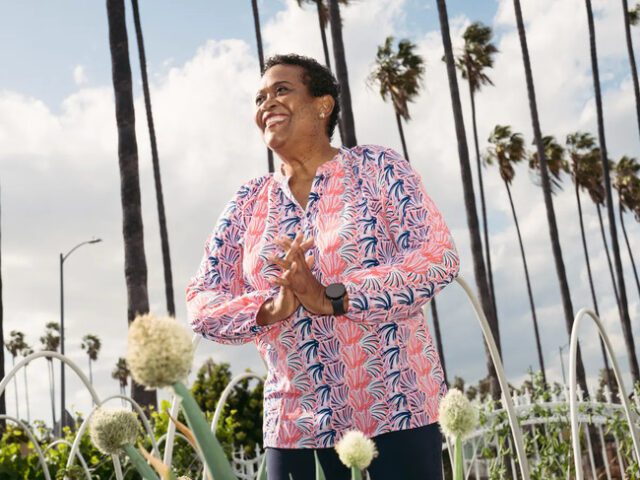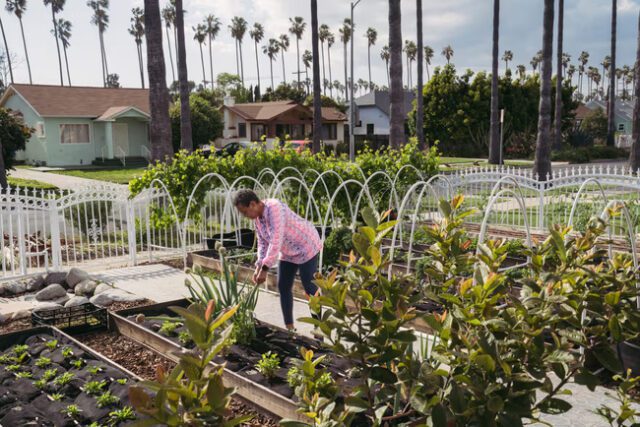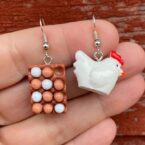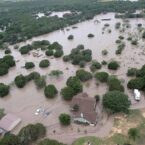
Beverly Lofton transformed her water-thirsty lawn in South Los Angeles into a flourishing micro-farm, a significant shift in an area known for its heat, water shortages, and urban sprawl. This verdant space, powered by solar energy and utilizing recycled water, now produces a variety of crops such as carrots, beets, and potatoes, which are distributed among her neighbors. The initiative is not only a bold move against the dominance of concrete and cars but also serves as a direct challenge to food insecurity and large-scale agriculture. Lofton’s micro-farm stands as a beacon of sustainability and community resilience in a neighborhood often labeled as a “food desert,” highlighting the potential of urban farming to address critical issues like food apartheid.

Lofton’s journey began during the pandemic in 2020 when she connected with Crop Swap LA, a group dedicated to converting unused spaces into sustainable micro-farms. The conversion, which started in 2021 and was completed in 2022, involved removing her grass lawn and installing a reservoir, raised beds, and a drip irrigation system. This transformation drastically reduced her water bill from $400 to $37.63 every two months. The micro-farm, which includes a grapevine and various vegetables, not only conserves water but also fosters community engagement. Crop Swap LA maintains the garden and harvests produce weekly, offering affordable memberships to neighbors. The farm, named after Lofton’s late husband La Salle Lofton Sr., embodies his love for cooking and community, making a lasting impact on the neighborhood by providing fresh, locally grown food and inspiring others to consider sustainable practices.














